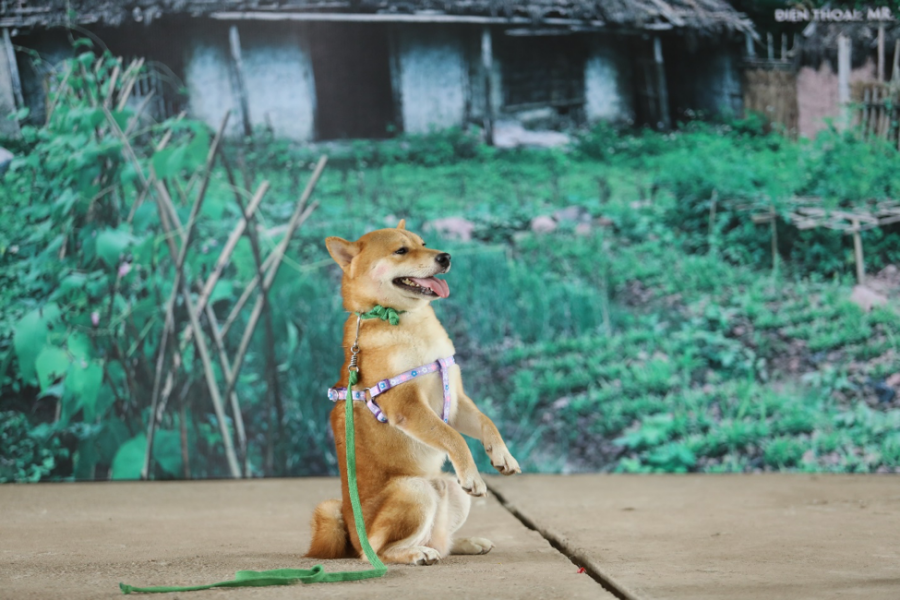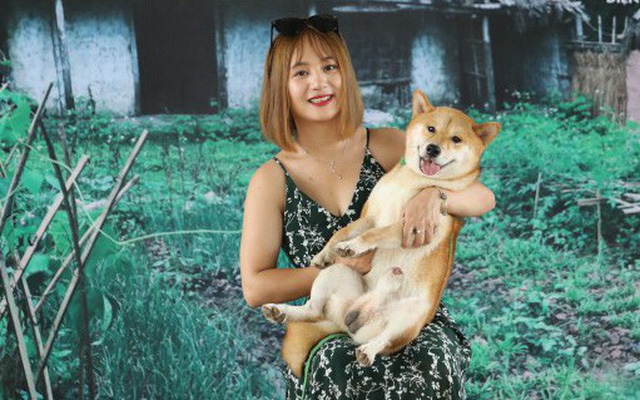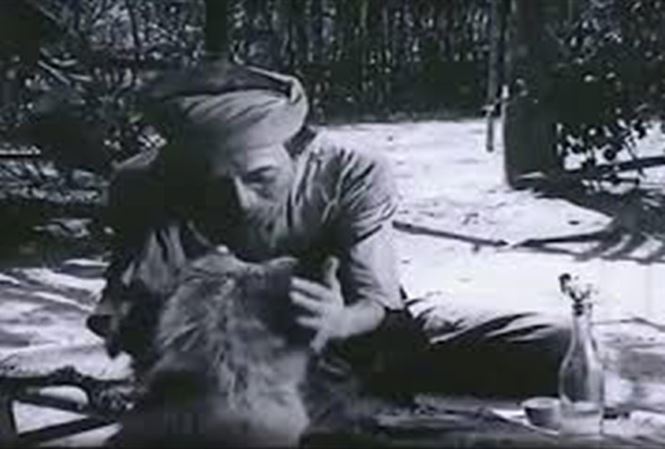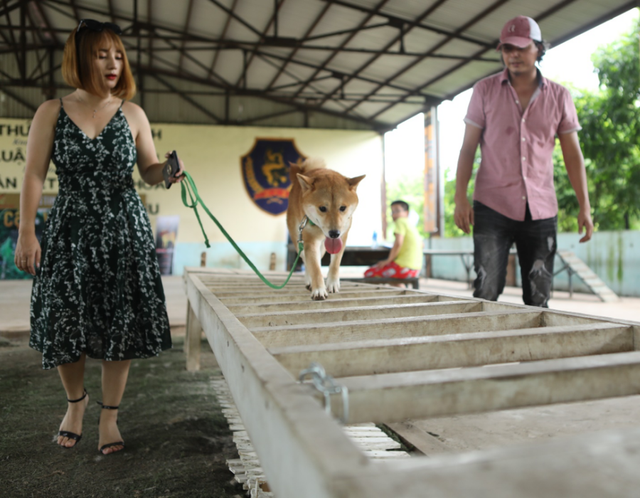A film adaptation of Vietnam’s celebrated short story Lao Hac hascome under criticism after it cast a dog of the Japanese Shiba Inu breed instead of a Vietnamese canine for the leading role.
Written in 1943, Lao Hac (Old Hac) is one of the most notable works of famous Vietnamese writer Nam Cao, tackling issues including poverty and class struggle in early 20th-century Vietnam prior to the August Revolution in 1945 that ended French colonial rule in the country.
The plot of Lao Hac revolves around Old Hac, a widower and farmer in rural northern Vietnam who struggles financially and ends up taking his own life to prevent poverty from corrupting his virtue.
His suicide was driven in part by his sense of guilt over selling Cau Vang (Little Vang) - the pet dog his only son had left for him to take care of before leaving for work in a rubber tree plantation.
The story of Lao Hac is taught at middle schools in Vietnam.
Cau Vang, a film project that looks to adapt Nam Cao’s famous short story for the silver screen with Old Hac’s pet dog playing the leading role, held a casting call for the protagonist in Hanoi on August 17-18, according to a press release issued by the film’s producers last week.
A two-year-old Shiba Inu dog, which is native to Japan, was cast to play Cau Vang after hundreds of dogs of various breeds were brought in from all parts of Vietnam and abroad for auditions, the press release said.
|
|
| An owner and her dog are seen at an audition for the 'Cau Vang' film project in Hanoi August 17-18, 2019. Photo: Luu Cuong |
The winner, which is also named Vang in real life, was picked as it met all the criteria the casters were looking for: intelligence, agility, and friendliness.
It also passed an obstacle course with high marks and demonstrated its skills with confidence, the film producers said.
“There were many bright candidates, but Vang gave a stable and excellent performance throughout the audition,” director Tran Vu Thuy was quoted as saying in the press release.
The film is expected to begin shooting in September and hit cinemas in mid-2020.
‘Race row’
Readers of Tuoi Tre (Youth) newspaper have expressed disapproval of the casting decision since it made the news on Saturday.
“In my mind, I have always pictured Cau Vang as a Vietnamese dog and not some foreign dog from other parts of the world,” Huy Tran, a reader, wrote in a comment.
“How can Old Hac, who is portrayed as a man so poor he can barely feed himself, afford to own a Shiba Inu dog?” Tran asked.
A Shiba Inu puppy can cost VND18-120 million (US$780-5,200) on the pet market in Vietnam, depending on the breeder and the dog’s lineage, according to local breeders’ websites.
“I refuse to believe that the film producers couldn’t find a worthy candidate for the role out of millions of dogs out there that are native to Vietnam,” he added.
|
|
| Old Hac and Cau Vang as supporting actors in a 1982 Vietnamese film. |
Thanh Thao Pham, another reader, said there are many Vietnamese dog breeds that are known for their intelligence and friendliness, so the reasoning that Shiba Inu is more suited for acting is unconvincing.
“The Shiba Inu breed is considered the pride of Japanese people, so I can’t imagine a Shiba Inu dog playing the leading role in a Vietnamese film that requires accuracy in portraying the historical setting for the story,” Pham wrote.
Things have been taken “too far” and critics of the casting are being “too harsh” on the matter, director Tran Vu Thuy told Tuoi Tre in an interview.
For two years leading up to the casting call, the film crew had twice purchased pure-bred Vietnamese dogs and sent them to canine training centers to train for the role but results have not come out as expected, Thuy said.
“They either died or failed to acquire the skills needed for portraying the role [of Cau Vang],” the director added.
|
|
| Director Tran Vu Thuy (R) watches a dog maneuvering through an obstacle course during an audition for the 'Cau Vang' film project in Hanoi, August 17-18, 2019. Photo: Luu Cuong |
As the shooting schedule nears, the film producers did not want to take any further risk and decided to organize a public casting call to select a qualified candidate, he explained.
“Apart from the winner, we were also able to select two other dogs of Vietnamese breeds as a backup plan during the auditions,” Thuy said.
The director added that the production crew already had plans to make Vang appear as a Vietnamese dog on the big screen, including entering the dog into a weight loss regimen, using make-up, and employing cinematic effects.
Like us on Facebook or follow us on Twitter to get the latest news about Vietnam!





















































